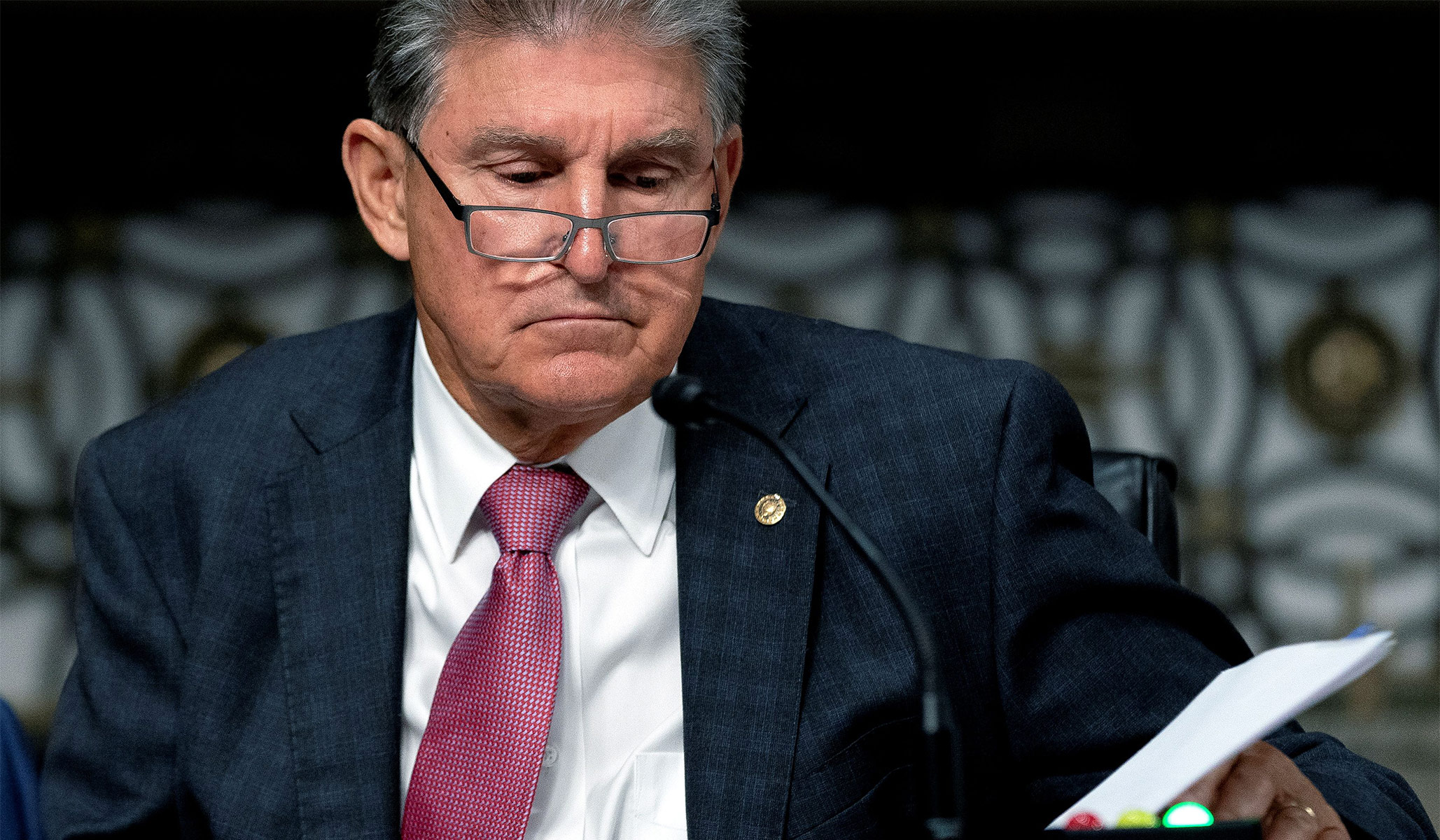Everyone’s asking questions about Senator Joe Manchin. The West Virginian is the decisive vote on the $3.5 trillion spending bill under consideration in Congress, and so far, he’s put up roadblock after roadblock. The Left is perplexed: Why is this lifelong Democrat standing in the way of a huge progressive victory? The Right is pleasantly surprised, and perhaps a little bit wary: Why is this longtime liberal acting like a conservative?
I prefer a different question: Is Senator Manchin the only Democrat who can read polls?
Manchin is taking stands that enjoy broad public support. I think he deeply believes in what he’s doing. But it’s also the case that he’s advocating policies that align with the views of a clear majority of Americans. Manchin is a man of the mainstream — not just the West Virginia mainstream, but the national mainstream.
Start with the bill’s price tag. While partisan surveys show people either loving or despising the idea of $3.5 trillion in new federal spending, middle-of-the-road pollsters indicate that there are widespread concerns about adding massive sums to the federal debt. Gallup’s 2021 research shows that more than three-quarters of Americans are concerned about federal spending and deficits, with about half worried “a great deal.” A spring Ipsos poll found that three out of four Americans think too much national debt will hurt the economy.
If mounting debt is a concern for voters, the massive spending bill should be a political nonstarter. Yet Manchin seems to be one of the few Democrats who recognizes the danger of passing the bill and is endeavoring to do right by the public. There’s a reason his call for a “strategic pause” on the $3.5 trillion plan has 60 percent support overall and nearly two-thirds support in suburbs.
In addition to concerns about the debt, Manchin has cited soaring inflation as one of his primary reasons for opposing the bill. He’s even called out his fellow Democrats for having “no regard” for families’ pain, following a year and a half of massive government spending that has led to ever-higher prices at the checkout counter. Core inflation recently saw its biggest jump in 30 years, and Americans know something is seriously wrong.
In an April CivicScience poll, a stunning 87 percent of American adults expressed concerns about rising inflation. These findings have stayed consistent in other polls throughout the year. In a late-summer Hill-HarrisX survey, voters said inflation was their biggest economic worry. Economists of all political stripes agree that further government spending would keep inflation high and families hurting. By standing in the way of Democrats’ spending binge, Senator Manchin is standing with Americans.
There’s also the matter of the bill’s dramatic expansion of entitlements, chief among them a costly expansion of the child tax credit. Democrats want to make permanent a temporary program that doles out millions of dollars in welfare-like checks to countless households. And unlike previous versions of the child tax credit, these larger payments don’t come with a requirement that parents work or even search for work.
Americans don’t like that one bit. Morning Consult found this week that only 35 percent of voters want the child tax credit made permanent, while 52 percent want it to expire. Other polls show similar opposition to Democrats’ proposal. So Senator Manchin is channeling the majority. As he put it in September, while stipulating his support for the child tax credit in some form, “Don’t you think, if we’re going to help the children, that the people should make some effort?”
Finally, Senator Manchin is demanding that Congress “means test” new programs, so only the most vulnerable will benefit. There’s little, if any, polling on this as it relates to the $3.5 trillion bill, but surveys concerning pandemic stimulus checks found that three-fifths of likely voters supported means testing. The public pressure was so intense, the Biden White House caved and means-tested the payments. It’s reasonable to assume that voters would want something similar included in a spending bill chock-full of new entitlements.
Senator Manchin’s opposition to so much of the spending bill is good politics and good policy. Of course, he still supports at least $1.5 trillion in new spending, which would be too much on its own, especially after the multitrillion-dollar spending sprees of the past year-and-a-half. It would be best for America in this moment if Congress failed to pass any new spending. Yet by refusing to support a $3.5 trillion package, expressing deep concern about inflation, and insisting that welfare be tied to work, Senator Manchin is reflecting the will of the people. The real question is why so many of his colleagues aren’t doing the same.
Something to Consider
If you valued reading this article, please consider joining our fight by donating to our Fall Webathon. Your contribution makes it possible for us to continue our mission of speaking truth and defending conservative principles.
